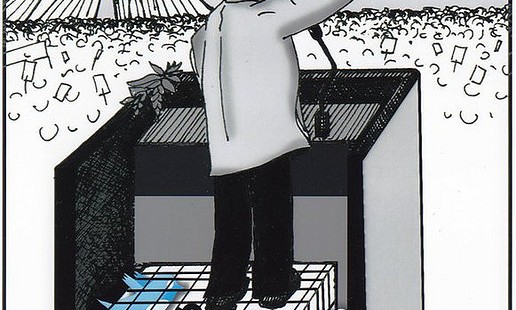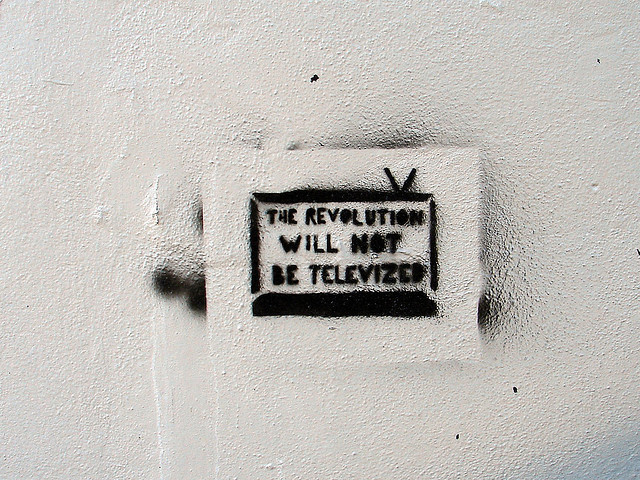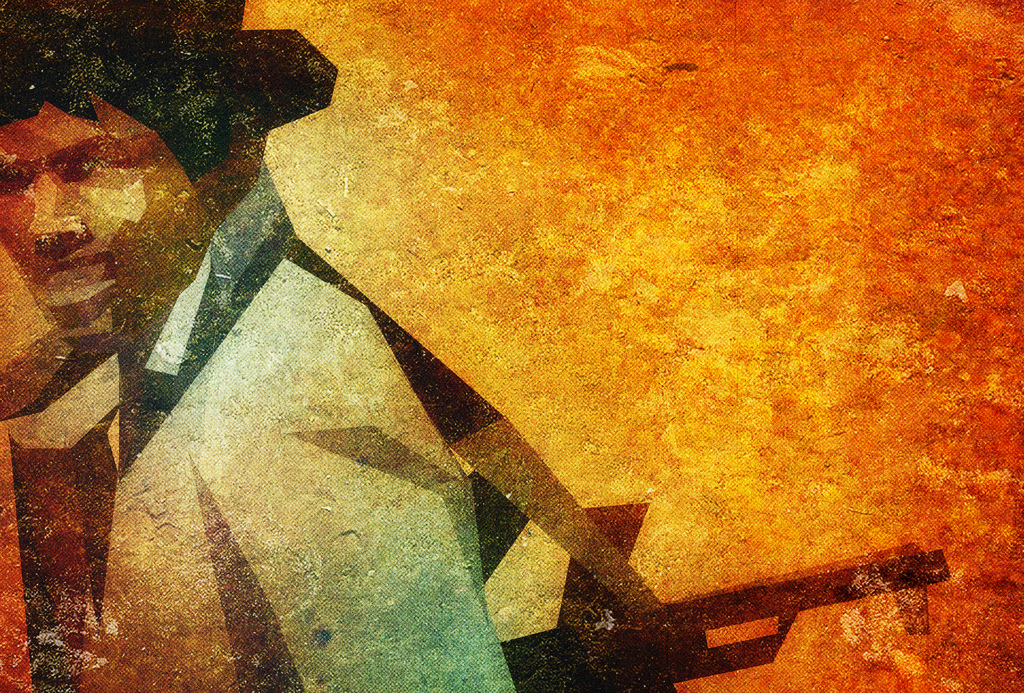Internet and Social Media as Tools of Freedom | PirateTimes

Internet and Social Media as Tools of Freedom
On 18 June 2013 a joint conference titled “Internet and Social Media as Tools of Freedom” was organized by MEPs Pawel Zalewski (EPP) and Amelia Andersdotter (Greens/EFA). The aim of the conference was to discuss the role of the Internet and social media in revolutions for building civil societies. The conference was held as a two hour panel debate with the help of several invited guests: Lina Ben Mhenni (Tunisian blogger), Gürkan Özturan (Turkish blogger), Katarzyna Szymielewicz (President od Panoptykon Foundation) and Jarosław Lipszyc (President of Nowoczesna Polska Foundation).
The use of technical tools to spread ideas is anything but new. The internet is just the latest, most complex and efficient way of transmitting information and providing access to conversations: it creates shared awareness. The ability of the Internet and social media to serve as spaces for discussion is crucial – this is how civil society and political opinions are formed. This strengthens the public sphere, grants more opportunities to engage in public speech and enables citizens to undertake collective action. In addition, the coordinating role of social media cannot be overestimated. Using Twitter and Facebook protesters can organize in an easy way that does not require any formal organizations, that helps to save time, and does not involve big funds.
The conference will focus on recent events in Turkey, the revolution in Tunisia that was part of the Arab Spring and on mass protests against ACTA in Poland. All of these events have one thing in common – their participants: unhappy with their government’s actions they have decided to act and are using the internet to organize themselves.
The panel debate took place inside the European Parliament with a room full of interested listeners. Some people also followed the debate via the live-stream provided. I you want to watch it yourself, a recording of the stream is available, or you can keep reading the summary below.
Pawel Zalewski started off the conference with an opening speech that showed his understanding for both the powers and weaknesses that Internet can provide. He stressed that the Internet and social media are not what causes revolutions, but merely helpful tools.
Internet is a tool for freedom. We must not give up our freedoms, even if many of the people trying to control the Internet often do it with good intentions.

The panel debate was organized in a manner where each of the invited guests got an opportunity to speak about their situations and how the Internet and social media has been used. Between the speeches, Amelia and Pawel took turns giving a few comments and introducing the next speaker. After the speeches a short time was allotted for questions (which unfortunately was limited to the attendees present, excluding the questions that came over social media).
Lina Ben Mhenni
The first invited guest was the Tunisian blogger Lina Ben Mhenni who talked about the importance of social media for mobilizing people and how crucial they were for communicating with the rest of the world. Journalists were not allowed in Tunisia to investigate so they had to rely on Skype and other tools for their news stories.
The role of internet has been exaggerated, the most important role is played on the ground.
Lina has an ambivalent view on Internet. She mentioned that Ben Ali (their former president) was gone but that the entire system was still in place, creating a need for Internet as a tool of attention. She also stressed that it is not enough and that traditional media are still needed to reach people and get attention from abroad to spread news of what is currently happening in Tunisia.
The bloggers in Tunisia have freedom of speech and can express what they want but they take a big risk doing so, the line between what is ok and what crosses the line being very diffuse. Recently a rap singer was sentenced to 2 years in prison for insulting a police officer in his song that was uploaded on Internet. She mentioned that journalists and bloggers were often abused and that every week trials against them take place in Tunisia.
Lina brought up that Internet and social media have lost efficiency because they are well used for propaganda in Tunisa now. Many political parties make use of them by employing “twisters of truth” to spread propaganda that makes extremist parties become “moderate parties” and other false informations. The persons employed to “twist the truth”not easy to fight,as non-paid freedom fighters have often lack time to face the defamation campaigns and other tricks used. Internet is not only a tool for freedom in Tunisia anymore. Lina ended her speech by saying that
The revolution is still going on. We need your help, we need your attention still.
Before introducing the next speaker, Amelia took the opportunity to reflect over what Lina had said and mentioned that: “When we talk about Tunisia here in Europe, we are more talking about the role it has for informing us than it does for mobilizing inside the country”.
Gürkan Özturan
The second guest to speak was the Turkish blogger Gürkan who decided to focus on the oppression, by the Turkish government, of free speech. He opened up by mentioning that Turkey was the 154th country in the world for freedom of the press. When news emerge, the Turkish journalists normally keep silent until the “official” version about the events is released from the government, which they can comment on in their articles. The Turkish government takes a very defensive approach calling unwanted events “terrorist actions” and telling the reporters that they promote terrorism if they report them. Newspapers that report things the government does not like are often asked to fire the editors responsible or at least “keep them on tighter control”. The media bosses often have investments in various other sectors of the economy. This creates a reliance on government support in these sectors to maintain their profits, essentially making them very reliant on the good will of the government. Independent journalism exists but has had a hard time of sustaining itself for longer periods of time.
Besides the pressure the government puts on newspapers, they also “twist the truth” in other ways. One way is by reversing film footage, for example instead of showing protesters backing defending themselves from police it is made to look like the protesters are the aggressive ones attacking the police. Much criticism has also been directed towards local affiliates of international news services in the country, e.g. CNN Turkey, who was broadcasting penguin documentaries, whilst the protests where raging on the streets.
Gürkan said that “[p]eople need to be triggered and see SM as a last resort for social uprising and sharing to take place”. Now that many of the protests are being organized through social media the prime minister called social media for “evil and misguiding”. The government is aware of the influence that social media has and sends e-mails to accounts with many followers offering them big money if they sell their accounts. Gürkan ends with saying that:
Big Brother should be aware of the little siblings.
Katarzyna Szymielewicz
Next up was Katarzyna who is working to “translate” the protests into political change through policies for politicians. Pawel mentioned that Poland was not fighting directly for democracy but towards the access of culture, freedom of expression and to maintain a free internet. He asked the next two speakers what could be done to “maintain free internet in democratic societies”.
Katarzyna brought up the point that they fought for “some kind of understanding for internet freedom” and mentioned that they were fortunate in Poland having politicians who listen to concerns. Just like Lina she brought up the point that internet is not fundamentally for good but can also be used against democracy. Some methods are to use fake pictures, altered messages and other manipulations in social media. Katarzyna also mentions that it is also a tool that almost always leaves traces of information behind, thus making it a great tool for surveillance. The Internet can also be a tool that sells our privacy, through the big corporations to whom we entrust sensitive or personal information.
Katarzyna asks how we can use Internet and move towards a more positive use. Laws don’t always work (e.g. PRISM) and more safeguards are needed. Katarzyna also sees a big failure of a use social media that is normally referred to as “click-tivism” (digital activists clicking like but not doing anything to change the situation).
She ends her speech by bringing up that the “big challenge is translating what we do online to real politics”. Translators are needed to transform these protests into a language understandable for mainstream media and politics.
Everyone should find their own part where they can help.
Jarosław Lipszyc
Jarowslaw started off by going back in time, describing how he got access to his first e-mail address in 1993 by illegal means (bribing a server admin to create a fake account for him). Having access to IRC and an e-mail gave him an enormous empowerment, he felt he had access to the entire world. When looking back Jaroslaw mentions some important changes that happened with the Internet over time. In the beginning, people fully controlled their tools (e.g. e-mail server on home computer) while they lost much of this power today (e.g. smart-phone with built in app-store controlling what you can install).
We do not control the internet. We do not control these tools. The powers we are given, only work as long as the tools we rely on work (e.g. twitter)
Internet was created as a distributed communication tool, a method towards redundancy for the government if their communication was attacked during war times. Jaroslaw puts emphasis on that the Internet was not created as a tool for control and surveillance. He says that it was “designed to be a tool in hands of the people” [Editors note: I believe this empowerment of people was more a side-consequence of the original use the military had for it than its original purpose].
The people have lost a lot of power and currently more of it is transferred to “the cloud”. A lot of our control has been given away to big companies such as Amazon, Apple, Facebook and Twitter. These companies are looking for revenue sources, making us the products and the advertisers the clients of our data. We sold our control “for a bunch of PHP scripts because it’s the easier way”.
One way of getting our machines back is through the help of free software. The question about free infrastructure is much harder since we never had control over this. Legal and technical reasons will stop the people controlling the cables from disappearing and will ensure our continued dependence on them for this.
We do not only need to defend our rights, we need to start and build the tools.
Discussion
After each guest had talked, the room was opened up to questions and more general remarks from the panel [editors note: unfortunately I was not fully present so only caught parts of this final discussion]. Pawel started off by saying that it was “completely against human rights to control who shares information, experiences and emotions”. He continued by saying:
Internet should belong to us, we shouldn’t only be a subject to companies, the public area should belong to us. Therefore it should be framed in the way that for example culture is not only a matter of trade. We should think over, again, the internet zone.
A question from the audience followed asking what role the EU could play in helping countries reach more democracy. Lina said that EU needs to support the people more instead of the regimes (something that is very hard to do in a political environment). Gürkan mentioned that ever since Turkey applied for EU membership people have learnt more about civil liberties and it is much thanks to EU that Turkey is experiencing this revolution. Pawel follows up this by saying that a broader opening into EU for countries could stimulate progress in a similar way as in Turkey.
Amelia continues by answering a question about internet in the role of the “commercial sector”. She says there is a disrepancy between “what we do here and the commercial sector”. Amelia also says that we need to think more about values we want in society instead of the “sales pitches” from various commercial interests that come in.
Internet is not like roads anymore, more like water. It’s critical infrastructure in our society that we rely on for every action. e.g. going for coffee, we need to make an appointment and we need to pay – Jaroslaw
Jaroslaw continues and says that internet is “too important to just leave to the commercial sector”. He says that we need to protect ourselves from lobbying and Katarzyna agrees by mentioning that citizens don’t have money for lobbyists, only their represented electorates that they have put trust in.
Politicians can never ignore lobbyists. We politicians are lobbyists as well. – Katarzyna
Jaroslaw concluded by mentioning some things that we can do in future to improve the situation. We should teach kids how to cipher e-mails. We don’t need better tools right now, just more knowledge about encryption to ensure our privacy. The importance of network neutrality has to be enforced.
Images: featured pic = CC-BY Noure Azadi // television = CC-BY Mark Gstohl // rebel = CC-BY Surian Soosay
About Josef Ohlsson Collentine
I’m a dual citizen (American/Swede) and try to integrate my reflections from a more global perspective if possible. I’m the organizational leader for Pirate Times and work actively to strengthen the pirate movement through this work as well as being the international contact for Piratpartiet (PPSE). Elected board member of PPSE for 2015-2018.
If you would like to ask me something I speak English, Swedish and Spanish. Find me on the links below















custom camping tees
Amy Conway